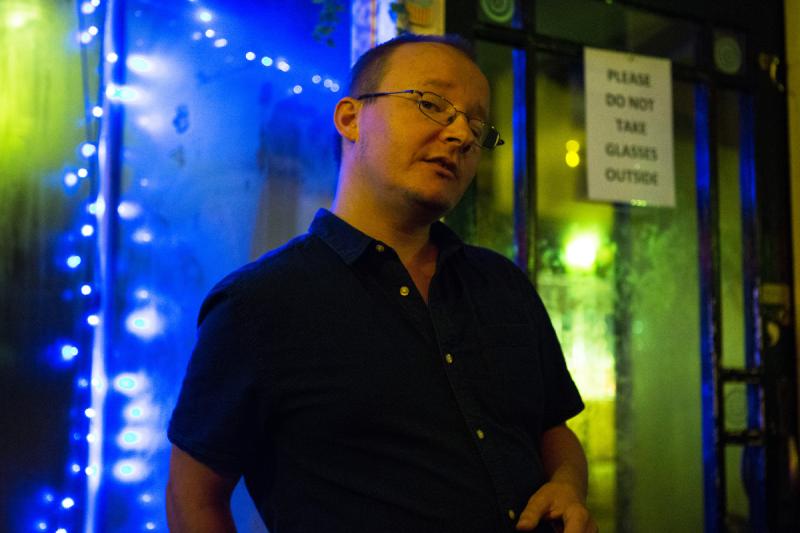search
date/time
 | Yorkshire Times Weekend Edition |

Steve Whitaker
Literary Editor
@stevewh16944270
7:59 AM 28th July 2019
arts
Friends In Ancient Sunlight: An Otley Run By Joe Williams

Joe Williams
Joe Williams is not blinkered by preconception, or immune to reality. His frank depiction of the Otley Run – between Woodies in Leeds’ Headingley and the Dry Dock at the bottom of Woodhouse Lane, with semantically-negotiated variations – is precisely that: a retailing of the dramatis personae, the locations and the progression of one such journey. And from this ‘odyssey’ (it is meaningful to the protagonists), emerges a necessary rite of passage, an unusual underwriting of ad hoc camaraderie, and, most prominently, the inscribing of what will become a significant memory. The implication of Williams’ valedictory is that it can never be repeated to the same degree of nostalgic satisfaction:
‘But we know what it’ll mean to you.
We know about the magic
at the end of an Otley Run.’
We know about the magic
at the end of an Otley Run.’

‘We can always tell
who’s bored or slumping,
waiting for the wind to change,
a bite to eat to pick them up,
to skip a drink next time.
We can always tell
who never really wanted to be there.’
who’s bored or slumping,
waiting for the wind to change,
a bite to eat to pick them up,
to skip a drink next time.
We can always tell
who never really wanted to be there.’
The mental occlusion into which some of the journeyers sink is more retreat than slump; whilst some fall off their seats or never return from the ‘bog’, still others disappear without a nod, the fallen soon ‘forgotten’.
Williams is good at the pithy summation, the telling vignette in whose quietude lies the noise, the disinhibition and the micro-skirting of drunken suggestion. When he says that ‘Rachael and her new best friend / have given up on subtlety’ we are invited to imagine the cacophonous consequences. And the Run is a battle of a peculiar sort. Williams’ extended metaphor, which kicks aptly in halfway through this Headingley journey is acute in more than obvious ways: the denouement, willingly entered into, is nemesis for many - those who fall by the wayside or are laid over in bushes, locked in lavvies or accosted by raiding parties going the other way.
But the point seems to be that battle is enjoined whilst fully cognisant of the risks. In ‘The Library’, Williams’ skilled figurative thinking describes the disorientation of a pub/battlefield in words which amount, almost, to the mock-heroism of a much earlier school of satire:
‘The fallen forgotten.
no toast, no eulogy.
Instead they lament the loss
of a plastic trident,
as a solo deely bopper
bobs in mourning for its partner,
gone, who knows where.’
no toast, no eulogy.
Instead they lament the loss
of a plastic trident,
as a solo deely bopper
bobs in mourning for its partner,
gone, who knows where.’
Also by Steve Whitaker...
Poem Of The Week - Children's Special: Orcadia By Rachel BurrowsPoem Of The Week: Off Duty By Katie DonovanBread And Roses: Jennie Lee At Bingley Little TheatrePoem Of The Week: Cargoes By John Masefield (1878-1967)Blown Apart By The Sun: Strike By Sarah Wimbush‘The Hyde Park.
It’s a fair walk for ten Where’s Wallys,
cloned in single file.
There’s only supposed to be one of him, idiots.
That’s the whole fucking point.
It’s a fair walk for ten Where’s Wallys,
cloned in single file.
There’s only supposed to be one of him, idiots.
That’s the whole fucking point.
An Otley Run is published by Half Moon Books
For more information: https://www.halfmoonbooks.co.uk/index.php/product/an-otley-run/